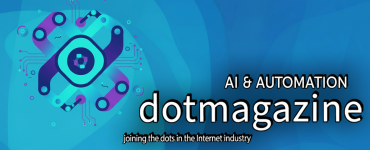| It is common knowledge that we are now in an era marked not only by rapid digital transformation, but also escalating cybersecurity threats. As such, this month’s dotmagazine underscores a pivotal shift towards integrating robust security measures and trust-enhancing strategies across various facets of digital communication, including the transformative evolution of email and strategic domain name management. By uniting technological advancements with strategic regulatory enforcement, this edition highlights a collective endeavour to fortify digital interactions and safeguard online spaces.
As email celebrates its 40th anniversary in Germany, it remains a cornerstone of digital communication, now poised at the brink of revolutionary change driven by trust and advanced technology. At this year’s Certified Senders Alliance (CSA) Summit, Alex Charles from GMX and WEB.DE highlighted how this stalwart of communication is gearing up to integrate enhanced security measures, identity verification processes, and personal AI capabilities to meet the growing demands of the digital age. As Alex notes, this quiet revolution focuses on “improving communication, powering identity, and enabling personal AI.” This sets email to reinvent itself as a more dynamic, secure, and indispensable tool in our digital lives. At the 2024 CSA Summit, Sebastian Kluth from CSA further illuminated the vital role of trust in transforming email marketing into a powerful tool for deep, sustainable, and long-term customer relationships. In showcasing responsible communication tactics, senior experts at his panel shared invaluable insights on crafting emails that not only respect recipients’ preferences and privacy but actively engage them. By adhering to key principles such as obtaining explicit permission, maintaining transparency, and personalising content, Sebastian notes how “brands can elevate their email strategies from mere communication to meaningful interaction.” This turns everyday emails into opportunities for lasting engagement and trust-building with their audience. Beyond ethical email marketing practices, companies must additionally address broader Internet security concerns, particularly in handling spam and malicious content. Sven Krohlas from Spamhaus Technology sheds light on the critical decisions companies face – whether to block spam or initiate takedowns of harmful content. His analysis unveils that “while blocking may offer a temporary solution, content takedowns not only mitigate threats but also strengthen trust.” This approach spotlights a commitment to safeguarding the company’s digital assets and the trust of their email subscribers. Developing a good rapport with anti-abuse teams and understanding the balance between quick fixes and long-term solutions can be instrumental in maintaining a trustworthy communication channel. In parallel to individual company efforts to bolster Internet security, significant progress has been made by organisations specialising in online regulatory compliance. The eco Complaints Office, a notable entity in this sector, reported handling a record 17,493 actionable cases in 2023, with a staggering 91 per cent related to sexual violence and boundary violations against minors. Alexandra Koch-Skiba, Head of the eco Complaints Office, underscores the principle of “takedown instead of blocking,” which not only removes harmful content but also reinforces trust in the digital spaces we navigate. In 2023, this strategy led to the elimination of illegal content in over 98 per cent of cases handled, showcasing the effectiveness of vigilant reporting and robust regulatory frameworks. These efforts are vital for safeguarding our digital interactions, building a safer online environment, and ultimately cultivating greater trust among Internet users worldwide. In today’s interconnected world, domain names and registrars also play a crucial role in safeguarding a brand’s online presence. Joëlle Samaké and Arnaud Wittersheim from Nameshield in Germany not only accentuate how “the unavailability of strategic domains can lead to serious consequences for the entire company,” but also how “choosing the right registrar ensures the security of your domains.” Their insightful discussions on evolving cybersecurity landscapes and regulatory changes provide invaluable guidance for businesses striving to secure their digital frontiers and ensure a trusted online environment for their customers. Last but not least, in delving into the nuances of trust in the digital world, it is crucial to consider the broader infrastructure that supports global digital communications. Ivo Ivanov, CEO of DE-CIX, envisions a world where “digital communication across continents is as seamless and trustworthy as within a single city.” Lisbon is on the brink of making this a reality, transforming into a crucial gateway for Europe and intercontinental data flows worldwide. Positioned as a nexus point with low latencies between continents, Lisbon is cultivating trust in its infrastructure. This development is vital for enhancing the efficiency of digital communication and fortifying trust and security frameworks. DE-CIX and other leaders will host the Atlantic Convergence in Lisbon from the 1st to the 3rd of October, where participants from around the Atlantic Ocean will gather to craft a shared and connected future. Overall, by exploring transformative trends in email communication, fortifying brand and domain security, and highlighting the significant strides made by the eco Complaints Office, the insights gained in this edition of dotmagazine pave the way for creating a more secure and trustworthy digital environment. These collaborations are crucial in shaping a digital landscape where trust is paramount, and security measures are robust and effective. Read the full issue at www.dotmagazine.online/issues/building-trust-in-the-digital-world |




